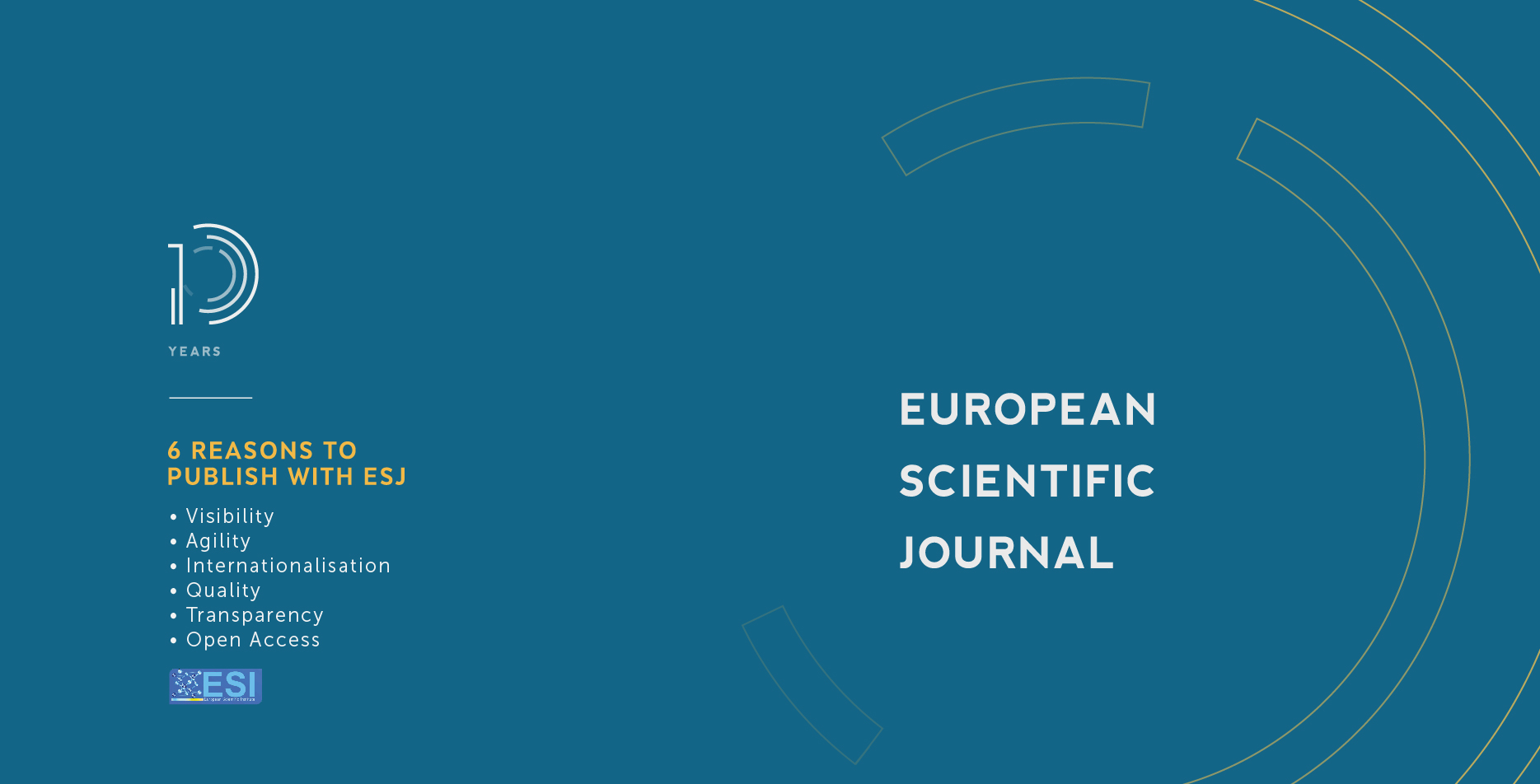Interactive-Invention Instructional Strategy and Secondary School Students’ Achievement in Selected Electromagnetic Concepts in Ibadan North Local Government Area (LGA), Nigeria
Abstract
Physics translates scientific discoveries to technology but students’ achievement in the subject has been observed to be below expectation at all levels of education in Nigeria. Electromagnetism aspect of physics is one of the areas in physics that has been reported to be very wide in coverage and abstract in nature, but students have difficulty understanding it. This paper focuses on determining the effect of interactive-invention instructional strategy on secondary school students’ achievement in electromagnetic concepts in Ibadan North LGA of Nigeria. Mixed methods research design was adopted for the study. Three senior secondary schools were randomly selected from Ibadan North LGA and also randomly assigned to the two treatment groups and control group. Intact classes from the selected schools were used and a total of 125 students participated in the study. The two treatment groups were taught using the interactive-invention instructional strategy with the electric motor/generator learning kits. Treatment group I participants worked individually while Treatment group II worked in groups of five. The control group were taught using the conventional lecture method. Physics Achievement Worksheets (PAW), Physics Students’ Attitude Questionnaire (PSAQ), and in-class discussion guide were the instruments used. The result of the study indicates a significant main effect of treatment on students’ academic achievement in the Experimental groups (F (2, 124) = 88.00; p<0.05, partial η2 = 0.61) and a significant main effect of students’ attitude on their academic achievement in the treatment groups (F(1, 124) = 5.80; p<0.05, partial η2 = 0.49). It was recommended that physics teachers should adopt interactive-invention instructional strategy in teaching electromagnetism concepts.
Downloads
PlumX Statistics
References
2. Cherry, K. (2021). Attitudes and Behavior in Psychology theories. Social Psychology Https://Www.Verywellmind.Com/Attitudes-How-They-Form-Change-Shape-Behavior-2795897. Retrieved 19-11-21
3. Federal Republic of Nigeria (2014). National Policy on Education.
4. Greeno, J. G., Moore, J. L., & Smith, D. R. (1993). Transfer of situated learning. In D. K. Detterman & R. J. Sternberg (Eds.), Transfer on trial: Intelligence, cognition, and instruction (pp. 99–167). Ablex Publishing.
5. Hegarty, M. (2014). Spatial thinking in undergraduate science education. Spat. Cogn. Comput 14,142-167. Doi:10.1080/13875868.2014.889696.
6. Ibrahim, N., Aiman, M., Zakiang, & Damio, S. M. (2019). Attitude in Learning Physics among Form Four Students Social and Management Research Journal, Vol 16, No 2 (2019) 19-40 https://doi.org/10.24191/smrj.v16i2.7060
7. Iroegbu, T. O. (1998). Effects of problems-based learning numerical ability and gender on achievement and line graphic skills at senior secondary schools physics in Ibadan. An unpublished Ph.D thesis of University of Ibadan.
8. Karamustafaoğlu, O. & Akdeniz, A. R. (2007). Demonstration of the fundamental behavioral skills improvement by prospective physics teachers in practice schools. Education 127:591-599.
9. Karamustafaoglu, O. (2009). Active learning strategies in physics teaching Energy Education Science and Technology Part B: Social and Educational Studies 9 Volume (issue) 1(1): 27-50.
10. Lindsay, P. (2011). Abstract Teaching from a Concrete World: A Lesson from Plato. Cambridge University Press. Political Science and Politics 44(3).
11. National Research Council (2002). Learning With Understanding: Seven Principles.". Learning and Understanding: Improving Advanced Study of Mathematics and Science in U.S. High Schools. Washington, DC: The National Academies Press. doi: 10.17226/10129.
12. Nigerian Education Research and Development Council (2008). Senior Secondary School Physics Curriculum 1-3, ISBN 978-054-696-0
13. Ogunbowale, N. B. (2014). Effects of interactive invention and problem based instructional strategies on student’s attitude to biology. An unpublished master dissertation of Department of Teacher Education, University of Ibadan.
14. Okeke (2016). Locus of Control, Study Habit and Gender as Coeeelates of Academic Achievement and Attitude of Senior Secondary School Physics Students in Ibadan Metropolis.
15. Okeke, U. K. & Ukoh, E. E. (2020). The influence of Locus of Control, Study Habit and Gender on the Academic Achievement of Senior Secondary School Physics Students in Ibadan Metropolis. African Journal of Teacher Education, Vol 9 21-48.
16. Olusola, O. O. & Rotimi, C. O. (2012). Attitudes of students towards the study of physics in College of Education Ikere Ekiti, Ekiti State, Nigeria. American International Journal of Contemporary Research, 2(12), 86-89.
17. Onifade, S. A. (2017). Effect of pre-lesson assignments and weekly formative tests assessment strategies on low-achieving physics student’s study habit in Ibadan metropolis. An unpublished master dissertation of Department of Teacher Education, University of Ibadan.
18. Shrimali, S. (2019). Tips on How to Make Learning Physics Fun and Enjoyable (knowledgeuniverseonline.com) Retrieved 1st December, 2021.
19. Thomas, Marr, & Walker (2005). Enhancement of intuitive reasoning through precision teaching and simulation. Schools of Physics and Psychology, Georgia Institute of Technology, Atlanta.
20. Tytler, R. & Osborne, J. (2012). Student Attitude and Aspirations towards Science in Second International Handbook of Science Education eds B. J. Fraser, K. Tobin, and C. J. McRobbie (Dordrecht:Springer) 597-625.doi:10.1007/978-1-4020-9041—7_41.
21. Ukoh, E. E. (2012). Determining the Effect of Problem-Based Learning Instructional Strategy on NCE Pre-Service Teachers’ Achievement in Physics and Acquisition of Science Process Skills. European Scientific Journal. Vol. 8(17), 102 -113.
22. Ukoh, E. E. (2013). Determining the Effect of Interactive-Invention Instructional Strategy and Gender on NCE Pre-Service Teachers’ Acquisition of Science Process Skills. African Research International Multidisciplinary Journal, Vol. 7(3), Serial No. 30.
23. Ukoh, E. E. (2016). Physics Teacher Effectiveness and Time Management. Issues in Teacher Education in Africa. Gbenga Adewale Eds. pp 319 – 330. ISBN 978-978-54094-5-1.
24. Uwizeyimana, D., Yadav, L., Musengimana, T., & Uwamahoro, J. (2018). The impact of teaching approaches on effective physics learning: an investigation conducted in five Secondary Schools in Rusizi District, Rwanda. Rwandan Journal of Education –Volume 4 –No 2 Pg.605. DOI:10.1017/S1049096511000692PS.
25. Veloo, A., Nor, R., & Khalid, R. (2015). Attitude towards physics and additional mathematics achievement towards physics achievement. International Education Studies, 8(3), 35-43.
26. Vilia, P. N., Candeias, A. A., Neto, A. S., Franco, M. S., & Melo, M. (2017). Academic Achievement in Physics-Chemistry:The Predictive Effect of Attitudes and Reasoning Ability Front Psychol.8.1064 doi:10.3389/fpsyg.201701064 Educational Psychology frontiersin.org/
Copyright (c) 2022 Enyeneokpon Ukoh Edidiong

This work is licensed under a Creative Commons Attribution-NonCommercial-NoDerivatives 4.0 International License.








